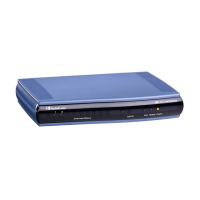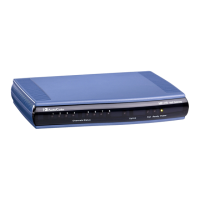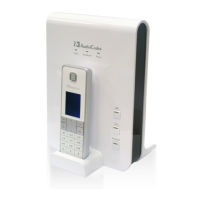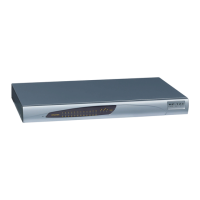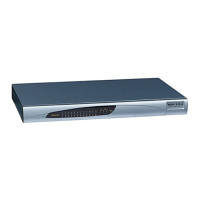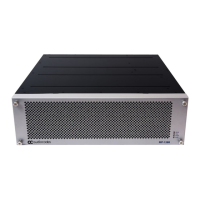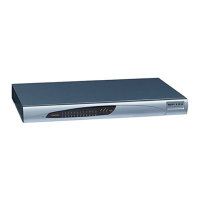CHAPTER34 Routing SBC
Mediant 1000 Gateway & E-SBC | User's Manual
Parameter Description
src-transport-type
[Classification_
SrcTransportType]
■ [-1] Any = (Default) All transport types
■ [0] UDP
■ [1] TCP
■ [2] TLS
'Source Port'
src-port
[Classification_SrcPort]
Defines the source port number as a matching characteristic for
the incoming SIP dialog.
By default, no value is defined.
'Source Username
Pattern'
src-user-name-
pattern
[Classification_
SrcUsernamePrefix]
Defines the source URI user part as a matching characteristic for
the incoming SIP dialog. The URI is typically located in the SIP
From header. However, you can configure the SIP header from
where the device obtains the source URI, in the IP Groups table
('Source URI Input' parameter). For more information on how the
device obtains the URI, see SIP Dialog Initiation Process.
You can use special patterns (notations) to denote the user part.
For example, if you want to match this rule to user parts whose
last four digits (i.e., suffix) are 4 followed by any three digits (e.g.,
4008), then configure this parameter to "(4xxx)". For available
patterns, see Dialing Plan Notation for Routing and Manipulation.
The valid value is a string of up to 60 characters. The default is
the asterisk (*) symbol, meaning any source user part.
Note: For REGISTER requests, the source URI is obtained from
the To header.
'Source Host'
src-host
[Classification_SrcHost]
Defines the prefix of the source URI host name as a matching
characteristic for the incoming SIP dialog.
The URI is typically located in the SIP From header. However,
you can configure the SIP header from where the device obtains
the source URI, in the IP Groups table ('Source URI Input'
parameter). For more information on how the device obtains this
URI, see Call Processing of SIP Dialog Requests.
The default is the asterisk (*) symbol, which represents any
source host prefix.
Note: For REGISTER requests, the source URI is obtained from
the To header.
'Destination Username
Pattern'
dst-user-name-
pattern
[Classification_
DestUsernamePrefix]
Defines the destination Request-URI user part as a matching
characteristic for the incoming SIP dialog.
You can use special patterns (notations) to denote the user part.
For example, if you want to match this rule to user parts whose
last four digits (i.e., suffix) are 4 followed by any three digits (e.g.,
4008), then configure this parameter to "(4xxx)". For available
patterns, see Dialing Plan Notation for Routing and Manipulation.
The valid value is a string of up to 60 characters. The default is
the asterisk (*) symbol, meaning any destination user part.
'Destination Host'
dst-host
Defines the prefix of the destination Request-URI host name as a
matching characteristic for the incoming SIP dialog.
- 766 -
